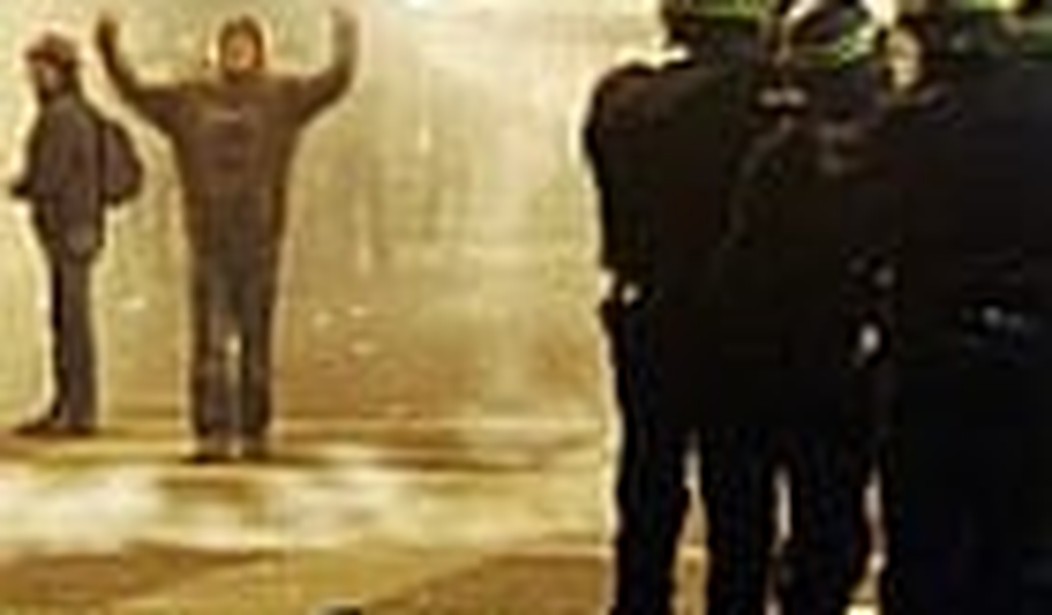On October 14, a female police officer was working in the police station in the Amsterdam neighborhood of Slotervaart.
Her job that day: she had to help civilians at the counter. She had helped several people that day when a 22-year old Moroccan Dutch, Bilal B., entered the office. He walked towards her, jumped over the counter, pulled a knife and stabbed her in her neck. When she fled, he stabbed her twice more in her back. A male colleague tried to help her, but to no avail: he too was stabbed by Bilal, in the neck and chest. The heavily wounded female police officer felt that there was only one way to stop Bilal B. from killing both her and her colleague, pulled out her gun, and shot the attacker. Bilal B. died.
Shortly after the attack and death of Bilal, reports came out that he was a troubled young man: he suffered from schizophrenia, he was institutionalized in the past and even committed voluntarily the week before the attack, saying that he was suicidal. After one day, however, he escaped from the mental hospital, a run which ended in his premature death. But there was more. Bilal also had contact with members of the terrorist group the Hofstadgroup. Dutch intelligence officers had kept an eye on Bilal and had even considered ‘stalking’ him. This means that they would monitor his behavior, but not just yet, they would let him know that they were watching him. It had been decided, however, that although he had contact with Hofstadgroup members, it was not necessary to devote much time and attention to him.
Following the attack, the two severely wounded police officers were brought to the hospital where they underwent surgery. Shortly after, word came out that their lives were no longer in danger. Instead of mourning the loss of Bilal B. – by all accounts a tragic figure – and celebrating the survival of the two police officers, Moroccan youth took the streets, burned down cars and attacked the police station in their neighborhood, destroying windows and, generally terrorizing Slotervaart. It even got so bad that the president of the neighborhood Slotervaart, Marcouch (who is of Moroccan descent himself), called on the police to adopt a zero tolerance policy.
Strangely, however, the police in Amsterdam refused, for a long time, to do so. They favored a ‘soft policy’ which meant that they hoped that Slotervaart’s ‘buurtvaders’ (the neighborhood fathers who serve as an ‘example’ to the children of immigrants because they’re integrated well and generally behaving in accordance to the laws of this country) would talk to the Moroccan-Dutch youth who were terrorizing the city. The police thought that the buurtvaders would be able to calm things down.
Ironically, the buurtvaders agreed with Marcouch and wanted the police to arrest the trouble makers and to use force if necessary. The buurtvaders understood that there is only one thing these thugs listen to: power. The police, sadly, did not. The result is that Moroccan-Dutch thugs terrorized Slotervaart three nights in a row, burning down cars in front of police officers and destroying whatever comes in their way.
This continued until Wednesday night, October 17 when finally, the Dutch police decided to act and arrested eight individuals. However, although they were arrested, the youths were released shortly afterwards which enables them to cause trouble time and again. According to the head of the police in Amsterdam, there are some 35 Moroccan-Dutch delinquents between the ages 12 and 15 at the core of the violence and he has now warned the rest of the country that what happened in Paris last year, may happen here now as well. Obviously, the intention of the police is to prevent that from happening, but in order to do so, the youths causing the trouble, breaking the laws and burning down the cars, have to be arrested and taken off the streets, and not treated with kid gloves.
What we have learned from the riots in France is that the police has to act immediately. If they allow the rioters to go on for a couple of days, until things are so bad that even the most conciliatory elements in the government considers it necessary to act, they’ve already waited too long.
Whatever the police does at that point will only serve as fuel on the fire. Right now, there is still time to act, but the police should do what the buurtvaders are urging they should do: get tough, starting now. Pulling them off the streets the one night, only to put them back on the following morning is neither tough nor effective.
We Dutch have displayed enough patience with our badly integrated Moroccan-Dutch minority. We have displayed enough tolerance, we have given them everything they wanted except for a second Morocco. Zero tolerance should be our policy from now onwards; not just in Amsterdam, but in the entire country.
Michael van der Galiën, based in the Netherlands, is founder and editor of The Van Der Galiën Gazette and Chief Political Reviewer at the Monsters and Critics books section









Join the conversation as a VIP Member